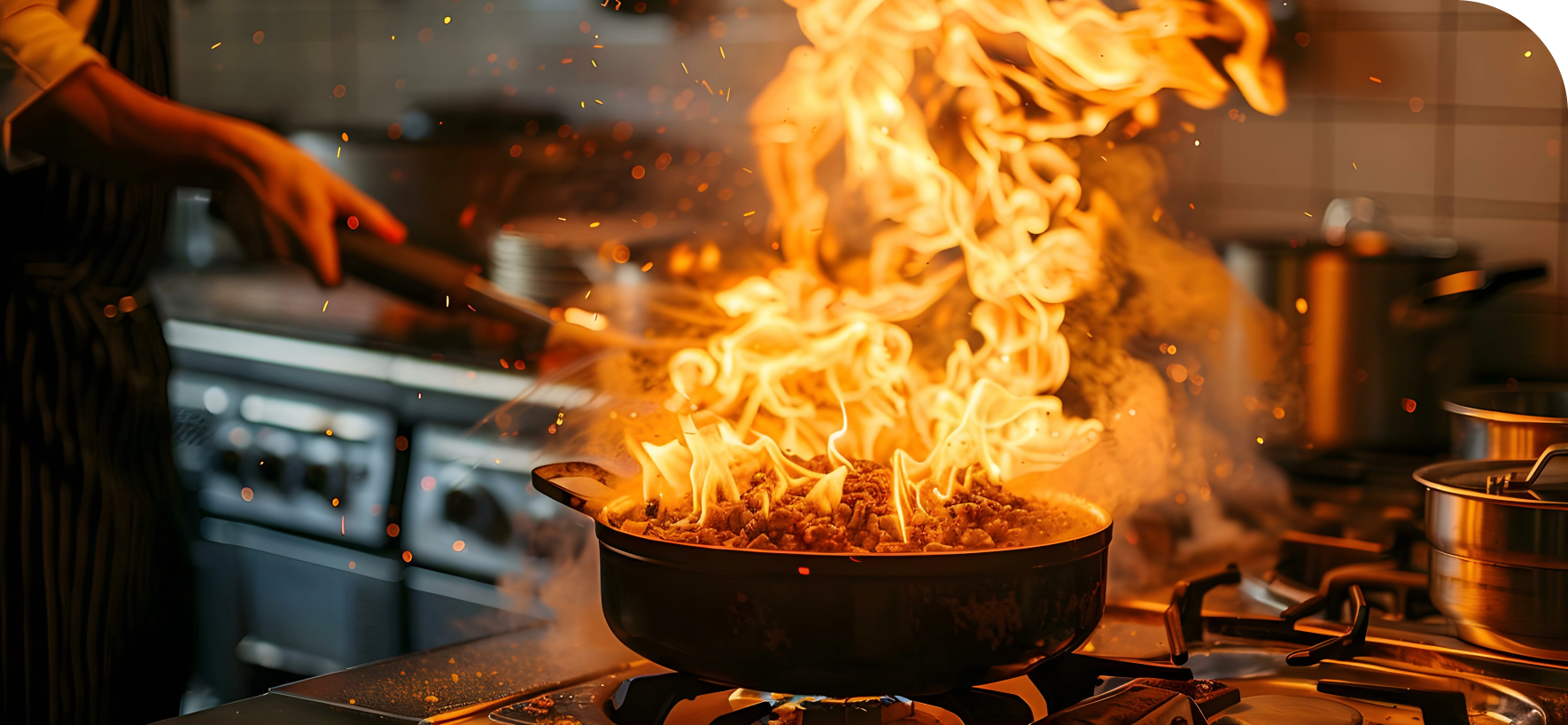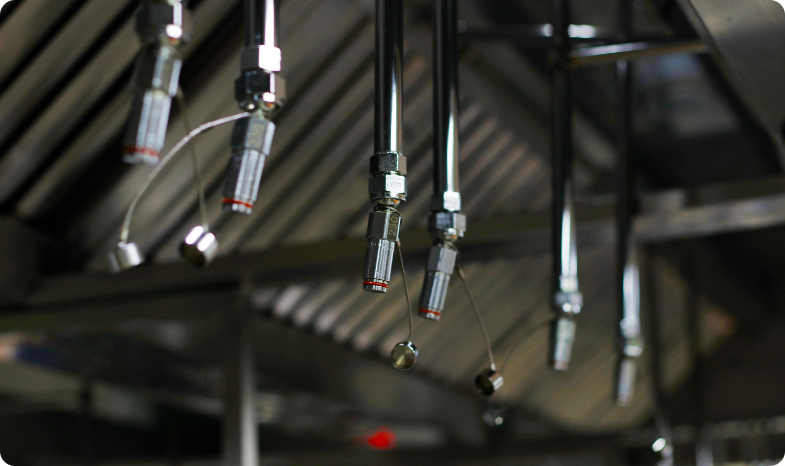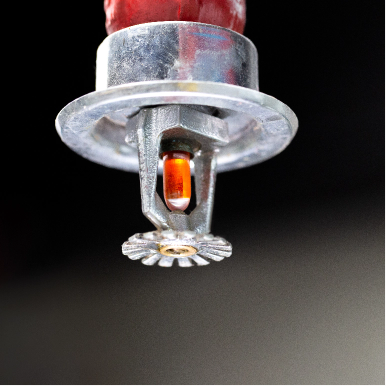Kitchen Fire Suppression Systems

Protect your business from kitchen fires
Fires are a common hazard in commercial kitchens, carrying a serious risk to life and the potential to cause catastrophic damage. That’s why having a kitchen fire suppression system in place is crucial for any business that operates a kitchen, whether it’s a restaurant, hotel, catering company, or any other establishment that handles food.
Vipond can review your kitchen usage and determine the best system to protect it from fires. For more information about our commercial kitchen suppression services, contact us today.


Protect your people, property, and assets from the threat of fire.
Which businesses need kitchen fire suppression systems?
Many businesses require robust kitchen fire suppression systems to ensure safety and compliance with regulations. Restaurants are the most obvious, given their extensive use of cooking equipment and oils that pose significant fire risks. Fires involving restaurants and cafes represent 42% of all fires within the food and drink sector put together.
However, the necessity extends beyond restaurants to encompass hotels, fast-food outlets, cafes, and catering companies. Schools, colleges, and hospitals, which have large-scale kitchens to prepare meals for students, staff, and patients, also require fire suppression systems.
Each of these establishments requires a fire suppression system to protect its assets and individuals and to comply with UK legislation and regulations designed to ensure fire safety.

How do kitchen fire suppression systems work?
Kitchen fire suppression systems are designed to detect and extinguish fires rapidly, often before they have a chance to spread.
A robust, self-contained pneumatic system detects fires. Upon the build-up of excessive heat, the pressurised detection tubing bursts and activates the cylinder valve, releasing the extinguishing agent.
This allows the extinguishant to flow freely to the discharge nozzles. Tethered stainless steel blow-off caps prevent grease from getting into the nozzles during normal kitchen operation, but once a fire is detected, they allow the extinguishing agent to flow freely, cooling and suffocating the fire by a process called saponification.
The PH-neutral agent will not damage the cooking appliances and hood and can easily be cleaned up. Following a fire event, a Vipond engineer can recharge the cylinder and reset the system, returning the kitchen to full operation and protection.
Which regulations apply to kitchen fire safety?
In the United Kingdom, fire safety in commercial settings is governed by a legal framework designed to ensure the highest levels of protection for businesses, employees, and customers alike.
The primary regulation is LPS1223, a certification standard specifically covering fixed fire suppression systems. This standard outlines the requirements for the design, installation, commissioning, and maintenance of suppression systems, ensuring they can effectively control and extinguish fires in kitchen environments.
Additionally, businesses must adhere to BS EN 16282-7, part of European standards for installing fire suppression equipment in commercial kitchens. This standard covers the requirements for fire suppression systems that protect kitchen extraction equipment, including hoods, ducts, and fans, highlighting the importance of integrated safety measures across all kitchen components.
Compliance with these regulations ensures the safety of a commercial kitchen and protects businesses from potential legal consequences and financial losses associated with kitchen fires. Understanding and implementing the guidelines in LPS1223 and BS EN 16282-7 is essential for any business operating a commercial kitchen in the UK, highlighting the importance of professional advice and expert installation of kitchen fire suppression systems.
To ensure your kitchens and staff are protected from the risk of fire damage, contact the experts at Vipond to discuss the best options to suit your needs.
Our solutions

Protect your people, property, and assets from the threat of fire.





